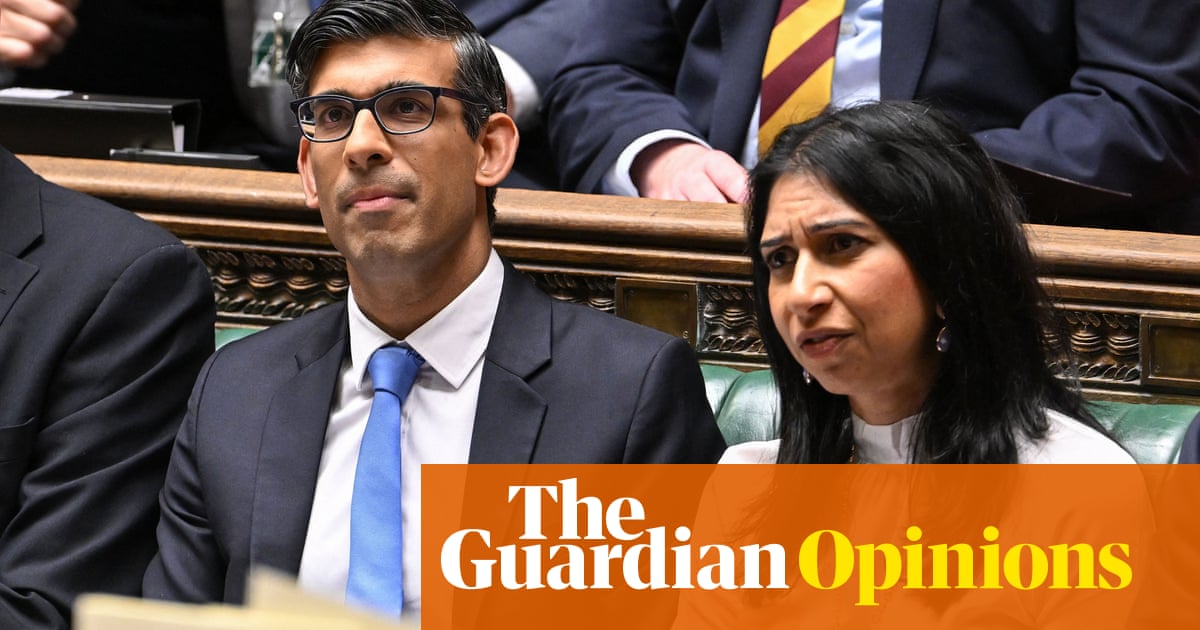
Britain’s stubborn attachment to non-Tory values infuriates and worries Conservative politicians to equal degree. Yes, there is a suspicion of immigration or welfare cheats and an attachment to law and order they can exploit, but belief in fairness, in standing together and public spiritedness and, increasingly, in matters green seem impervious to attack.
Right-of-centre British newspapers have done an unparalleled job in attempting to move public opinion to the right, but as their circulation declines so their influence wanes. Without a politician of the campaigning zest of Boris Johnson, Tories concede, their chance of winning elections will fade. The imperative is to use the current conjuncture to follow the US and build a broadcast media as effective as the fading print media in cheerleading the Conservative cause. Public service broadcasting and, above all, broadcast regulators’ attachment to impartiality are in their crosshairs.
Last week came two important moves on the chessboard. Rupert Murdoch announced he is expanding the model of talkRadio into a television arm, talkTV, signing up Piers Morgan as a lead presenter. The ambition is for talkTV to be the channel that GB News wanted to be – more aggressively to the right than its ex-chair, Andrew Neil, thought congruent with journalistic integrity, but less tedious and shouty than the rightwing headbangers who hector GB News’ shrinking audiences.
Unlike them, Morgan, for all his foibles, can broadcast (as can Neil). And Murdoch, whatever else, has a nose for what works. But he might need Ofcom to indulge his attempt to stretch notions of impartiality and for that he needs a rightwing ideologue as its chair. That man was to be ex-Daily Mail editor Paul Dacre.
But at the end of May Johnson’s attempt to shoehorn him into Ofcom collapsed; the Department for Digital, Culture, Media and Sport appointments board declared him unappointable – he was disqualified because of his disdain for digital technology and impartiality rules. Downing Street and, in particular, Johnson’s aide Munira Mirza, who zealously polices all public-sector appointments and is especially alert to the fulcrum role of culture and media, were not happy.
In July, the former culture secretary Oliver Dowden, desperate to save himself in the coming reshuffle, brought forward the politically toxic privatisation of Channel 4 as proof he understood what his task was – a form of Tory virtue signalling. It didn’t work. Last week, he was unceremoniously dispatched to be replaced by Nadine Dorries.
Neither Johnson nor the chancellor, Rishi Sunak, was impressed by the political flak being incurred by the rushed sale of profitable Channel 4, allegedly for its own good. Protests came from advertisers, independent TV producers and MPs outside London. No 10’s doubts were intensified by the warmth of the reception given to Channel 4 screening the final of the US Open – by buying the rights from Amazon Prime – and Emma Raducano’s famous victory.
It was looking like bad politics. Nor was it good economics. Sunak is concerned about removing a pillar of one of the UK’s most successful industries – independent television producers who count Channel 4 a foundational source of commissions. He could not see how, with guarantees required about commissioning from small British companies, sustaining British content and keeping a powerful presence outside London, as Dowden had conceded, it was going to raise any serious money.
ITV’s chair might salivate over the potential synergies if ITV bought the channel, but it was unlikely that the Competition and Markets Authority would sanction less competition in the broadcast media. Channel 4 would be sold abroad for a pittance amid public and industry protest – and the protesters would be right.
Far more important to Johnson now seems to be to spend scarce political capital in the bid to make Dacre (or a surrogate) the chair of Ofcom, the chief blockage to creating a broadcast media as openly partisan as that in the US. If that were secured, everything else could follow. What is needed in the DCMS is a thick-skinned Tory culture warrior and Johnson loyalist who will rerun the appointment even if it breaks, as Julian Knight, the chair of the Commons culture select committee insists, industry standards on allowing failed appointees to reapply.
Enter Dorries. Her job is to appoint Dacre (or the surrogate), to weaken Ofcom and its commitment to “due impartiality” in its broadcast code, cow the BBC and use the DCMS to appoint culture warriors in her own and Mirza’s image on every public body for which she has responsibility. If she judges it expedient to put the privatisation of Channel 4 to one side, as new housing minister, Michael Gove, has done with planning reform, then so be it. But she must deliver on the big prizes – weakening Ofcom and the BBC – that will make life so much easier for talkTV and other rightwing channels that may follow.
It may take two parliaments or more to complete the job – Johnson is supremely confident he will win again– but the dismantling of impartiality rules and the weakening of public service broadcasting will be done, if slowly step by step.
Johnson is going carefully because he knows the ground is treacherous: the British cherish their public service broadcasters nearly as much as they cherish the NHS and there are one-nation Tories, along with the new intake from the north, who can’t see ending Match of the Day, The Great British Bake Off or even BBC News as vote winners.
Yes, we like the new streaming services, but we like them alongside traditional broadcast channels with their commitment to impartiality, not instead of them. Better still, if we don’t have to subscribe, as is the case with More4, because the digital streaming is paid for by advertising.
The opposition parties fight shy of entering this battle, but it could be an opportunity if they had the same killer political instinct as Johnson. Britain and Britishness are intimately wrapped up with our public service broadcasters. It is the Tories, for their own partisan interests, who want to destroy requirements of impartiality. For those politicians who blow the whistle on all of this, there are rich electoral rewards.












